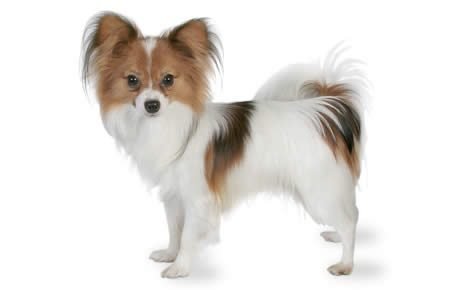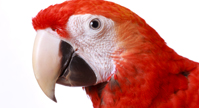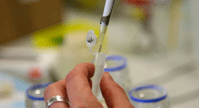Progressive Retinal Atrophy (PRA1)
Description:
Progressive retinal degeneration (PRA) is the most common cause of complete blindness in both humans and dogs. In Papillons and the closely related breed Phalenes a set of variances, including a 1-bp deletion, followed by a 6-bp insertion causes a frameshift mutation in CNGB1 gene. The result of this variant causes a recessive form of PRA1. The study further showed that this is a breed specific mutation and was not found in 334 healthy dogs from 10 other breeds as well as 121 PRA affected dogs from 44 additional breeds.
In affected animals photoreceptor cells in the retina begin to degenerate prematurely, typically progressing from a loss of night vision to complete blindness. In Papillons, PRA1 is a late developing disease with an average onset between 5-6 years of age. Affected PRA1 dogs may not show any daylight vision loss for many years, sometimes for the remainder of their life.
PRA1 is inherited as an autosomal recessive disorder. A dog must have two copies of the mutated gene to be affected by PRA. A dog can have one copy of the mutation and not experience any symptoms of the disease. Dogs with one copy of the mutation are known as carriers, meaning that they can pass on the mutation to their offspring. If they breed with another carrier, there is a 25% chance that the offspring can inherit one copy of the mutated gene from each parent, and be affected by the disease.
Sample Type:
Animal Genetics accepts buccal swab, blood, and dewclaw samples for testing. Sample collection kits are available and can be ordered at test now.
Test Is Relevant To The Following Breeds:
Papillon, Phalene
Results:
Animal Genetics offers DNA testing for Papillon PRA1. The genetic test verifies the presence of the recessive CNGB1 gene and presents results as one of the following:
| PRA1/PRA1 | Affected | The dog carries two copies of the mutant gene and is homozygous for PRA1. This dog will be affected and will always pass on the defective gene to it's offspring. |
| PRA1/n | Carrier | Both the normal and mutant copies of the gene detected. Dog is a carrier for the PRA1 mutation and can pass on a copy of the defective gene to its offspring 50% of the time. |
| n/n | Clear | Dog tested negative for the PRA1 gene mutation and will not pass on the defective gene to its offspring. |
Submit a Sample For Testing:
To submit a sample for testing please go to test now.
To
order a sample collection kit please go to order sample collection kits.










